Politics
Russian envoy says trade with Hong Kong can grow under strong Moscow-Beijing ties
Published
6 months agoon
By
Ekwutos Blog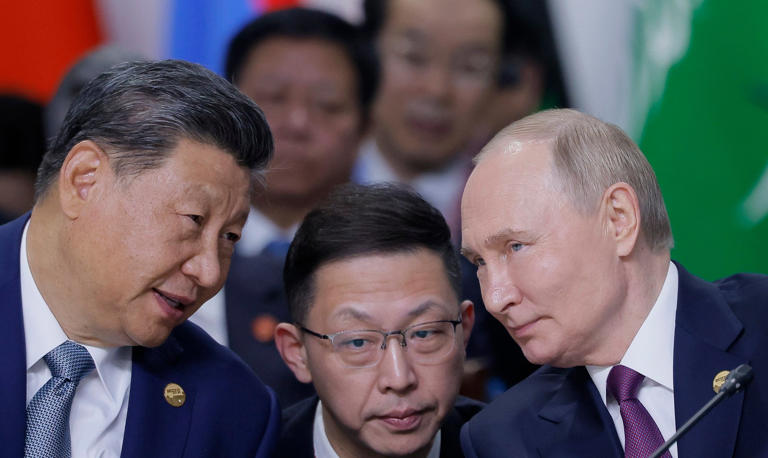
China, Russia can do more to support companies affected by Western sanctions, says Consul General Anatoly Kargapolov
This is the eighth in a series of interviews with consuls general of emerging and belt and road economies with which Hong Kong is keen to build ties. Here are the previous ones.
Russian companies have faced difficulties accessing Hong Kong’s banking services following Western sanctions, but the country’s top envoy to the city has brushed off the impact on bilateral trade.
Consul General Anatoly Kargapolov said growing ties between China and Russia had opened up new opportunities for collaboration with the city, urging the financial hub to host economic forums with former Soviet states.
Do you have questions about the biggest topics and trends from around the world? Get the answers with SCMP Knowledge, our new platform of curated content with explainers, FAQs, analyses and infographics brought to you by our award-winning team.
He spoke to the Post in an exclusive interview days before leaders Xi Jinping and Vladimir Putin said on the sidelines of the 16th Brics summit in Kazan, Russia, last week that both countries were committed to boosting cooperation for a “fair world order”.
Since Russia invaded Ukraine in February 2022, it has faced a slew of sanctions from the United States, the European Union and other Western countries. It was also cut off from Swift, the main international payment messaging network.
Some Russian companies experienced difficulties with banking services in Hong Kong, but Kargapolov said that “was never critical for developing bilateral trade”.
He said US sanctions on dozens of Hong Kong companies for their alleged ties to Russia were meant to “negatively influence” Russia-China trade.
While the affected companies had to navigate the challenges they faced themselves, he added that Moscow and Beijing should support the business community.
In September, the US Treasury Department’s Office of Foreign Assets Control sanctioned 26 Hong Kong companies and another based in the city and mainland China. That followed sanctions last December on eight companies in the city.
On a visit to Hong Kong in July, Ukraine Foreign Minister Dmytro Kuleba urged Chief Executive John Lee Ka-chiu to prevent Russia from using the city to evade Western restrictions.
Lee assured Kuleba that the city adhered to global sanctions and local laws.
Kargapolov called those sanctions “illegal”, saying: “The global economy is grossly distorted by the methods that the West is using to punish those who do not follow its ‘rules’, which are steeped in neocolonialism, and to wipe out its competitors.”
He added that Western countries tried to use the same method against Russia-China trade and Hong Kong in particular, in their attempts to undermine the city’s status as a global financial centre.
Despite the challenges, Russia’s relationship with Hong Kong was part of its “comprehensive partnership and strategic cooperation” with the mainland, which was experiencing “remarkable growth” and opening up new opportunities for deepening cooperation, he said.
He also highlighted the city’s role as the largest source of offshore yuan, which Russia had increasingly turned to for foreign trade in recent years.
Hong Kong’s bilateral trade with Russia climbed to US$5.8 billion last year, up 50.9 per cent from 2022, according to official data. Exports surged by 123 per cent, while imports were up 11.2 per cent.
To boost trade and business ties further, Kargapolov hoped Hong Kong could host economic events focused on member countries of the Commonwealth of Independent States (CIS), which comprised most of the former Soviet Union states in Central Asia and Eastern Europe.
He noted the Hong Kong government had begun paying more attention to countries in the Asean bloc, or the Association of Southeast Asian Nations, and the Middle East, and said that Russia could also supplement the development of the city.
“This will help to extend the economic cooperation between CIS countries and Hong Kong, and with Russia in particular,” he said.
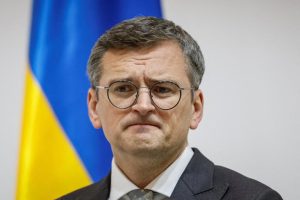
Dmytro Kuleba, Ukraine’s foreign minister, in July urged Chief Executive John Lee to prevent Russia from using Hong Kong to evade Western restrictions. Photo: Reuters
Russia’s exports to the city mainly consisted of precious metals such as silver and platinum, as well as pearls and other precious stones, according to Trade Development Council data.
Kargapolov said there was “huge interest” from Russian companies hoping to send agricultural and food products to the city for re-export to Asean countries and the mainland.
Hong Kong also had unique advantages within the framework of the Greater Bay Area, linking the city with Macau and nine cities in Guangdong province, including its international connectivity, financial infrastructure and common law legal system.
Kargapolov said Hong Kong’s position as a research and development hub also offered new opportunities for cooperation in areas including artificial intelligence and fintech such as banking software.
Lighter side
What surprised you most about Hong Kong when you first arrived?
I was surprised that on such a small piece of land you managed to build great transport infrastructure and business infrastructure. It is a city that combines and embraces everything active people would wish to have.
In a small area everything is accessible. In 20 minutes I can go from the office to the trail to go hiking. I also can enjoy the seashore.
Do you have a favourite local dish?
I like the seafood. Sometimes I go to the wet market, buy some fish and cook it myself. In Moscow, we have mostly frozen products.
But here, you can have a fresh catch and I can treat my family to some dishes.
Where do you usually take guests when they visit Hong Kong?
No 1, we take them to The Peak. No 2, we take them to the [Big] Buddha. No 3, we take them to Tai Kwun because it is an iconic place – the architecture, heritage, cuisine.
If this is not enough, we take them to Tai Po, the fishing village, and we take a boat ride to see the dolphins. We are not lucky every time, but I have seen them.
More Articles from SCMP
Surprised David Eustace breaks new ground with 240-1 Happy Valley double
Discover the quirky toilet habits of wombats, sloths, and more
Why North Korea is starting to become a ‘forgotten’ space for China and the US
PLA Navy tests South China Sea defences as Vietnam and Philippines expand footprint
This article originally appeared on the South China Morning Post (www.scmp.com), the leading news media reporting on China and Asia.
Copyright (c) 2024. South China Morning Post Publishers Ltd. All rights reserved.
You may like


NDLEA raids Lagos hotel, recovers N1.042billion illicit drug consignments …Intercepts over 2million pills of tramadol in Kano, Jigawa; another Saudi-bound cocaine in body cream; arrests 3 Ghanaian ladies for cross border trafficking


Group calls for minister’s sack over alleged act of tribalism, economic sabotage
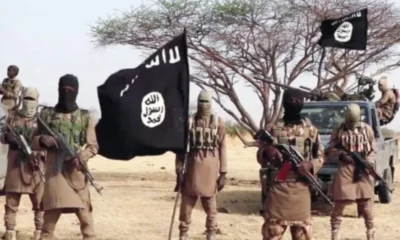

Suspected Boko Haram terrorists kill 10 vigilantes in Kwapre, Adamawa
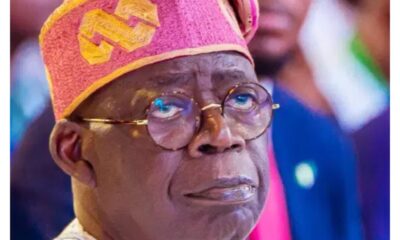

PIA: Support independent regulatory institutions in oil and gas sector – Group to Tinubu


NDLEA arrests 60-year-old grandmother, major drug supplier in Kano
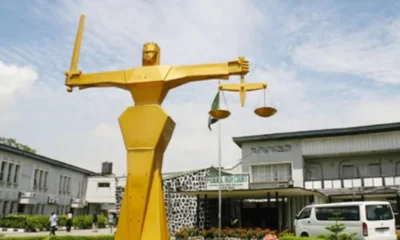

Enugu High Court Judge, Oluedo, faces NJC probe over alleged judicial misconduct
Politics
UK Tories consider replacing Kemi Badenoch as party leader after poor ratings
Published
10 hours agoon
April 27, 2025By
Ekwutos Blog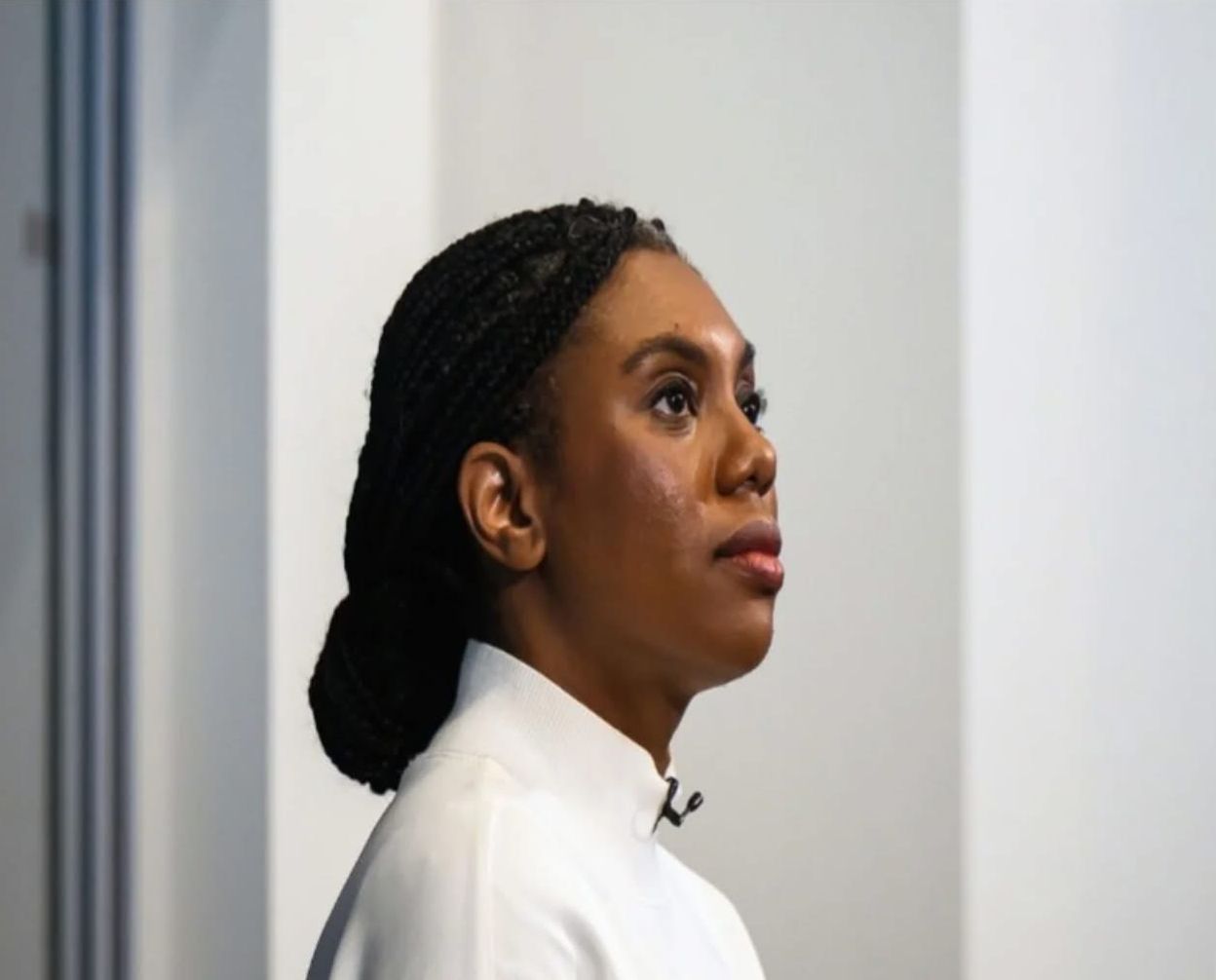
Six months after Kemi Badenoch was elected leader of the UK Conservative Party, internal discussions have already shifted toward the possibility of replacing her.
With local elections in England approaching, many Conservative MPs and officials are increasingly dissatisfied with Badenoch’s leadership and have expressed concerns that she is not the right person to lead the party into the next general election, scheduled for 2029.
According to more than two dozen sources who spoke to Bloomberg on the condition of anonymity, there is growing support within the party to replace Badenoch with Robert Jenrick, the right-wing shadow justice secretary.
The discontent comes amid low polling numbers for the Tories and the perception that Badenoch, who became leader on November 2, 2024,has failed to address key issues, leaving the party vulnerable to challenges from Nigel Farage’s Reform Party. Badenoch’s spokesperson declined to comment on the situation, while Jenrick’s spokesperson pointed to an interview in which he expressed support for Badenoch’s leadership, suggesting people should give her time.
The situation is expected to worsen with the upcoming local elections, where the Conservatives are predicted to lose a significant number of seats. The Tories’ performance in these elections is crucial, as they are seen as an early indicator of the party’s standing ahead of the general election. In the last local election in 2021, the Conservatives won nearly half the races, bolstered by then-Prime Minister Boris Johnson’s successful COVID-19 vaccine rollout. However, since then, the party’s popularity has plummeted, and they are now facing their worst-ever performance.
Political analysts predict a “total wipe-out” for the Conservatives in the upcoming elections, with Rob Ford, a professor of political science at the University of Manchester, calling it a “total and unmitigated disaster.” After briefly overtaking Labour in polls late last year, the Conservatives have fallen more than five percentage points behind both Labour and Reform, with the latter now emerging as a strong challenger on the right.
Politics
After meeting with Zelenskyy, Trump questions Putin’s willingness to stop Ukraine war
Published
11 hours agoon
April 27, 2025By
Ekwutos Blog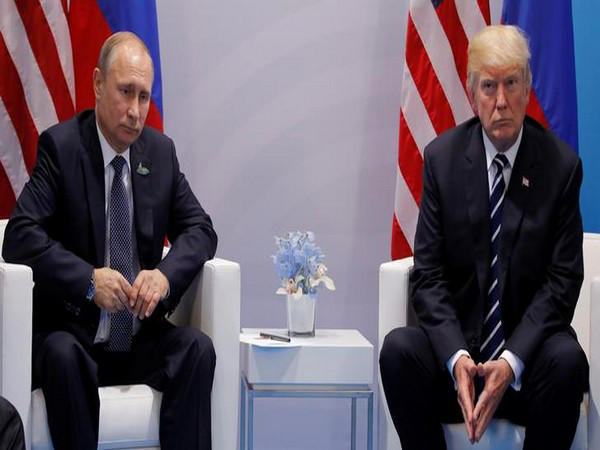
Washington, DC [US], April 27 (ANI): US President Donald Trump has questioned his Russian counterpart, Vladimir Putin’s willingness to stop the war and criticised recent missile strikes in Ukraine, CNN reported.
Trump said after his meeting with Ukrainian President Volodymyr Zelenskyy in the Vatican on the sidelines of Pope Francis’ funeral, on Saturday.
It was the first meeting between the two leaders since their meeting in the White House, when Zelenskyy faced criticism from Trump and Vice President JD Vance over what they saw as a lack of gratitude for American support.
In a post shared on his social media platform, Truth Social, as he was heading back to the US from Rome, Trump hinted at imposing sanctions against Moscow after Russia’s latest missile attack on Ukraine and questioned whether Putin wants to stop the war.
Donald Trump even criticised former US President Barack Obama and suggested that he “made it possible for Russia to steal Crimea from Ukraine without even a shot being fired.”
In a post shared on Truth Social on Saturday, Trump shared, “No matter what deal I make with respect to Russia/Ukraine, no matter how good it is, even if it’s the greatest deal ever made, The Failing New York Times will speak BADLY of it. Liddle’ Peter Baker, the very biased and untalented writer for The Times, followed his Editor’s demands and wrote that Ukraine should get back territory, including, I suppose, Crimea, and other ridiculous requests, in order to stop the killing that is worse than anything since World War II. Why doesn’t this lightweight reporter say that it was Obama who made it possible for Russia to steal Crimea from Ukraine without even a shot being fired. It was also Liddle’ Peter who wrote an absolutely fawning, yet terribly written Biography, on Obama. It was a JOKE! Did Baker ever criticize the Obama Crimea Giveaway? NO, not once, only TRUMP, and I’ve had nothing to do with this stupid war, other than early on, when I gave Ukraine Javelins, and Obama gave them sheets.”
“This is Sleepy Joe Biden’s War, not mine. It was a loser from day one, and should have never happened, and wouldn’t have happened if I were President at the time. I’m just trying to clean up the mess that was left to me by Obama and Biden, and what a mess it is. With all of that being said, there was no reason for Putin to be shooting missiles into civilian areas, cities and towns, over the last few days. It makes me think that maybe he doesn’t want to stop the war, he’s just tapping me along, and has to be dealt with differently, through “Banking” or “Secondary Sanctions?” Too many people are dying,” he added.
Trump and Zelenskyy spoke ahead of the funeral of Pope Francis. Describing his meeting with Trump as “good,” Zelenskyy said that talks focused on “full and unconditional ceasefire.” He expressed hope to see results on everything they discussed.
In a post on X, Zelenskyy said, “Good meeting. We discussed a lot one-on-one. Hoping for results on everything we covered. Protecting lives of our people. Full and unconditional ceasefire. Reliable and lasting peace that will prevent another war from breaking out. Very symbolic meeting that has potential to become historic, if we achieve joint results. Thank you POTUS.”
Trump and Zelenskyy had a “very productive” meeting in Rome, a White House official said – their first meeting since a tense meeting in the White House in February this year, Al Jazeera stated.
On Saturday, White House communications director Steven Cheung said, “President Trump and President Zelenskyy met privately today and had a very productive discussion. More details about the meeting will follow,” Al Jazeera reported.
In a post on X, Ukraine’s Minister of Foreign Affairs Andrii Sybiha stated, “No words are needed to describe the importance of this historic meeting. Two leaders working for peace in St. Peter’s Basilica.”
Politics
2027 Elections: El-Rufai meets Kwankwaso in Abuja
Published
12 hours agoon
April 27, 2025By
Ekwutos Blog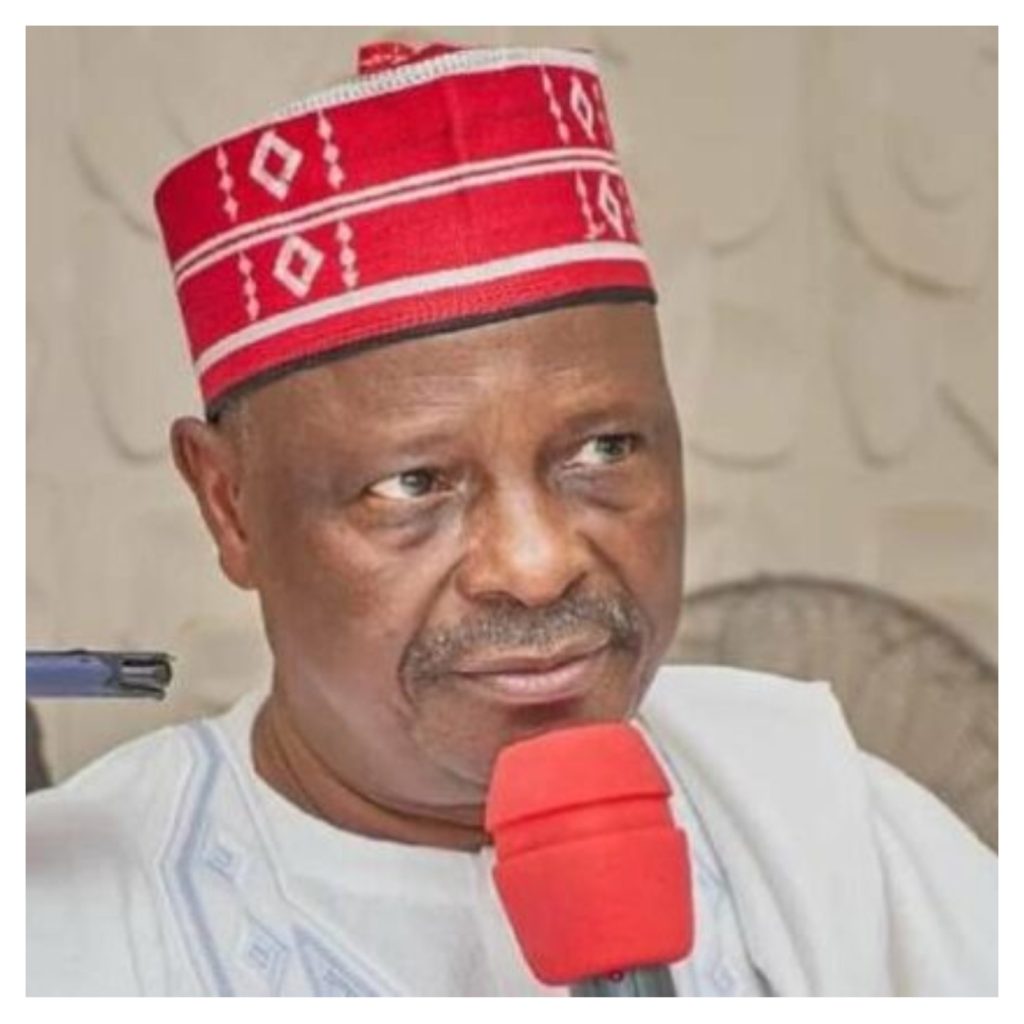
Former Kaduna State governor, Mallam Nasir El-Rufai, on Friday met with the national leader of the New Nigeria Peoples Party (NNPP), Senator Rabiu Musa Kwankwaso, in Abuja, fueling speculation about Kwankwaso’s possible return to the ruling All Progressives Congress (APC).
The two political heavyweights were seen together after Jumaat prayers at a mosque in the nation’s capital.
El-Rufai was accompanied by his eldest son, Hon. Bello El-Rufai, during the meeting, according to a report by The Nation.
The meeting comes against the backdrop of growing rumours that Kwankwaso has struck a deal with President Bola Ahmed Tinubu that could see him, along with his political followers, rejoin the APC.
Observers believe that Kwankwaso’s return could significantly boost Tinubu’s chances of securing re-election in the 2027 general elections.

NDLEA raids Lagos hotel, recovers N1.042billion illicit drug consignments …Intercepts over 2million pills of tramadol in Kano, Jigawa; another Saudi-bound cocaine in body cream; arrests 3 Ghanaian ladies for cross border trafficking

Group calls for minister’s sack over alleged act of tribalism, economic sabotage

Suspected Boko Haram terrorists kill 10 vigilantes in Kwapre, Adamawa
Trending

 Trending6 months ago
Trending6 months agoNYA demands release of ‘abducted’ Imo chairman, preaches good governance
- Business6 months ago
US court acquits Air Peace boss, slams Mayfield $4000 fine

 Politics6 months ago
Politics6 months agoMexico’s new president causes concern just weeks before the US elections
- Entertainment6 months ago
Bobrisky transferred from Immigration to FCID, spends night behind bars
- Entertainment6 months ago
Bobrisky falls ill in police custody, rushed to hospital

 Politics6 months ago
Politics6 months agoRussia bans imports of agro-products from Kazakhstan after refusal to join BRICS

 Politics6 months ago
Politics6 months agoPutin invites 20 world leaders
- Politics1 year ago
Nigerian Senate passes Bill seeking the establishment of the South East Development Commission.

